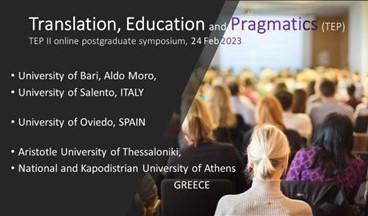Description
Gendered gaze and female identity in Greek versions of Romeo and Juliet (Dionysia Nikoloudaki)
The study examines construction of female identity in four Greek translations of one of Shakespeare’s most renowned plays Romeo and Juliet (1597), namely, the earliest Greek version by Demetrios Vikelas (TTa, 1896), the second by Vasilis Rotas (TTb, 1989), the third by Errikos Bellies (TTc, 1993) and the most recent one by Despina Agelidou (TTd, 2005). The study examines shifts which reveal how gendered gaze is shaping female identity in the play. While the TTa translator tends to reduce offensive language that permeates the original and, at times, even omits sexual vocabulary which compromises the female gender roles, TTb translator trivializes degrading language. The language shifts which most prominently degrade female identity with crude language and sexual innuendos appear in TTc and TTd. Findings suggest that variation in shaping the identity of Juliet and her Nurse arises from different societal expectations and mentality at the time of staging. In TTc/TTd versions, however, when offensiveness was less restricted by theatre conventions, the study found that Belies’ (TTc 1993) male gaze allows higher offensiveness than Agelidou’s (TTd 2005) female gaze. If gender is a social construct (Butler 1990) female translators need to overcome a socially constructed barrier which perhaps blocks them from adjusting offensiveness in their work, which they can achieve through education and training. A questionnaire addressing 13 respondents seems to further validate the analysis of the data.

